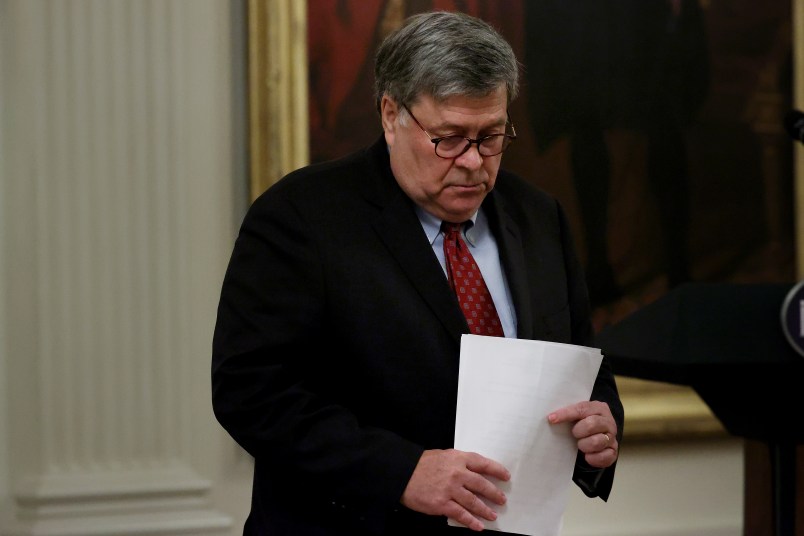Follow-on reporting about General Mark Milley’s crisis talks with his counterpart in the PLA just add more confirmation that these communications were entirely appropriate. We should be thankful they happened. We now know the calls were coordinated with the current and later the acting Secretaries of Defense. So it’s all very much by the book. As Tom Nichols explains here, the US military – and most professional militaries – invest great resources, often over decades, in military to military talks and liaison precisely for moments like this. If you need to make direct contact to defuse a potential crisis it helps a lot to have preexisting relationships in place. All of that investment is geared to moments like the ones described in the Woodward and Costa book.
There are reports that Trump, Mike Pompeo and the then-National Security Advisor didn’t know about Milley’s calls. If that’s true, then that is on the Secretaries of Defense, not Milley.
Nichols is right that the conversation about nuclear launch policy are much closer to the line. But he thinks Milley didn’t go over the line. He certainly didn’t do what James Schlesinger did in the dying days of the Nixon administration. For what it’s worth, I agree with Nichols on this: he’s the expert on just these questions, not me. So again, for what it’s worth.
There’s notable context to Milley’s actions that hasn’t received enough discussion.
Milley’s meeting with top officers at the Pentagon appeared aimed at short-circuiting a worst case scenario in which a deranged Trump reached into the Pentagon, found a relatively junior officer or appointee and tried to launch a nuclear strike without anyone else knowing what they were doing.
This is to put it mildly a pretty outlandish scenario. And, as we’ve noted, it’s a complicated question whether anyone would have the legal or constitutional authority to stop a president doing this. The President is the commander-in-chief of the US armed forces. All laws and procedures about the operation of the military are subsidiary – or arguably subsidiary – to the President’s powers as commander-in-chief.
But the scenario actually isn’t that outlandish. We still don’t know just what information, what signals or comments Milley was reacting to. But remember what was happening at the Justice Department. At this point Trump had dispensed with Bill Barr and had a new acting Attorney General at the helm, Jeffrey Rosen. Rosen, who one imagines Trump believed would be more tractable, was resisting Trump’s attempts to overturn the results of the election. So Trump reached down into the org chart of the DOJ to find a toady who would work with him. He found that toady in a guy named Jeffrey Clark, the acting head of the DOJ Civil Division. Clark thought Trump’s election reversal and coup plans sounded reasonable enough. So Trump was plotting to oust Rosen and replace him with Clark, who would back Trump’s coup efforts.
The precise details of the Rosen/Trump/Clark saga have been detailed extensively elsewhere. For our purposes what is relevant is that Trump was actively plotting a DOJ version of Milley’s outlandish worst case scenario around the time he held the meeting about control of the country’s nuclear arsenal. We can’t be sure Milley knew what was happening at DOJ. But there are many indications that top cabinet level officials were in communication with each other during this period. What’s more, after firing Secretary of Defense Esper right after the election, Trump had resorted to a range of stratagems to install a slew of Trumpite anti-Deep State true believers in critical positions at DOD on an acting basis. If Trump were hunting around for a DOD version of Jeff Clark, he had already installed several.
This all gets very hypothetical. It was a chaotic time. We can’t know for certain just who knew what. In the event, we know that Trump was neither organized enough nor committed enough to make even his gambit at DOJ work. Rosen and other officials were ready to resign en masse if Trump followed through on his plan. What is relevant is that Trump was doing at DOJ something very similar to what Milley appears to have feared Trump might be planning at the Pentagon. Identical? No. But similar enough to more than freak out even the steadiest person. Trump had already fired the Secretary of Defense without any Senate-confirmed replacement. He had stacked the Department with a list of cronies and toadies – a fact that looked ominous to outside observers at the time. Milley had good reasons to be concerned. And he probably knew of even worse things we don’t know about yet.






